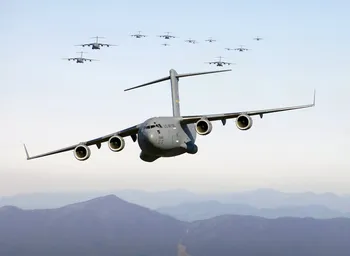Conferences and summits: The Annual Research Conference 2024 | Europe in a changing world: navigating the challenges, seeking opportunities, and building resilient economies
Europe is facing significant challenges as it seeks to maintain economic stability and adapt to an evolving geopolitical landscape. De-globalisation trends, which have been observed in goods trade and foreign direct investment, but less so in areas like services or innovation, may have complex implications for global value chains, economic efficiency, capital allocation, R&D incentives, and the structural transformations that are needed to achieve climate neutrality.
The COVID-19 pandemic has laid bare the vulnerabilities of global supply chains and the dangers of over-reliance on foreign industries for critical supplies. It has acted as a catalyst for nations to reassess their industrial strategy, specifically in sectors such as healthcare and technology. In the realm of supply chain resilience, industrial policy has emerged as a key tool. By bolstering domestic capabilities and promoting economic diversification, sourcing from multiple geographies and firms, industrial policy can insulate countries from supply chain disruptions, reducing economic vulnerabilities during crises.
Moreover, the escalating geopolitical tensions and looming trade wars have further prompted nations to re-embrace industrial policy. Governments are deploying these strategies to navigate the uncertainties and to secure a competitive edge in strategic sectors such as defence, energy, and artificial intelligence. The European Union itself is reflecting on the positive externalities of Members States investment in defence and on the role of the EU in promoting this investment, while preserving its single market, setting up its first-ever common defence industrial strategy, to enhance Europe's readiness and security.
The EU’s response to these ongoing trends and its position in the new world order may determine its economic potential, welfare, and the development of its single market. Its currency, which this year is celebrating its 25th anniversary, can play an important role in shaping the geopolitical and geoeconomic position of the European Union.
The 25th anniversary of the Euro's introduction prompts a reflection on the ongoing economic research questions surrounding this currency. Adopted by 20 out of the 27 EU member states, the Euro has sparked extensive discussion about its influence on the stability and growth of the Eurozone's economy and its potential international role. A stronger international role for the euro has much to offer, not only to the euro area and the EU but to the whole international monetary system. Ongoing policy initiatives, including the European Banking Union, the European Capital Markets Union, the digital euro and the enlargement of the euro area and the EU can contribute to unlock the full potential of the euro as a dominant currency, which would also bring a stronger influence for the EU at the global stage.





